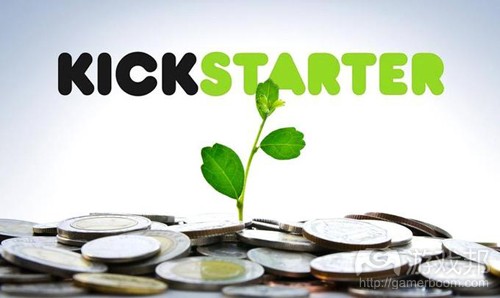每日观察:关注2013年美国游戏市场收益等消息(12.19)
1)Newzoo最新报告预测,2013年美国人在游戏产品中的投入将达205亿美元,其中数字游戏(包括主机下载游戏、PC游戏、智能手机和平板电脑游戏)收益国约133亿美元,占比65%;零售盒装游戏占比31%(64亿美元);二手游戏销售额预计将达16亿美元。
与2012年相比,零售游戏销售额下降了10%,数字游戏收益却增长了10%。
美国游戏玩家达1.7亿,其中付费玩家占比60%(即1.03亿),这些付费用户平均每月投入达16.5美元(中国付费玩家数量更多,但月均付费不及美国用户的一半)。
平板电脑游戏发展最快,复合年增长率达47.6%,智能手机增长率则是18.8%。
有4000万玩家(占比24%)在电视、PC、智能手机、平板电脑/掌机等多种设备上玩游戏,但两年前跨平台玩家的数据仅为3000万。目前只有中国和西班牙的跨平台用户比例超过美国。
2)据venturebeat报道,2013年粉丝通过众筹网站Kickstarter向游戏项目捐赠了2.004亿美元,其中有1985万美元流向了并未达标的项目,因此这些资金并没有被该网站接受,或者已经退还给粉丝(游戏邦注:如果筹资项目未能在30天内达标,就无法获得任何捐赠资金)。这意味着2013年该网站游戏融资项目实际上成功筹款为1.78亿美元。
Kickstarter网站所有项目在2013年共获得9.19亿美元,其中有7.89亿美元流向成功项目。在Kickstarter今年推出融资活动的7922个项目中,游戏项目是其中最大赢家,所筹资金占比22%。其次是影视项目,共成功筹得1.543亿美元。
去年粉丝向Kickstarter游戏项目捐赠了8300万美元,至今共有54款游戏至少成功筹得100万美元。游戏项目成功率为35%,目前有324个项目仍在筹资,粉丝已向这些项目捐赠240万美元。
据Kickstarter所称,该网站至今有5370万个成功筹款的项目获得了537万捐赠者的支持,其中有157万为重复捐赠者。多数成功项目筹款低于1万美元,有10%项目从未获得任何捐赠。
3)据AllThingsD报道,Benchmark合伙人Mitch Lasky在最近采访中表示,他认为Steam平台如此出色的一个重要因素就是拥有4000-5000万注册用户,因此它对开发者颇具吸引力。而聊天社交网络创建的初衷并非发布游戏,但不过却有许多用户流动性,因此对手机游戏来说具有极大的潜力。
4)据Tax-News报道,法国在过去5年中流失了50%的游戏开发岗位,这种情况导致该国政府提议改革电子游戏税收抵免政策。
鉴于许多法国开发者流向了美国和加拿大的情况,法国将首先延长游戏开发缴税期限,从原来的36个月延长至72个月,以便允许开发者延长游戏开发周期。
除此之外,法国国民议会还支持修订相关法案,允许PEGI 18+级别的游戏申请享受减税政策,并降低申请门槛,原先申请关税的游戏最低预算需达到15万欧元(20万6010美元),现在已将这一标准降至10万欧元(13万7340美元)。
5)据gamaustra报道,证券法律公司Robbins Geller Rudman & Dowd LLP日前向美国加州北部地区法院提起集体诉讼,称被告EA及Peter Moore、Andrew Wilson、Blake Jorgensen等数位高管违反了1934年证券交易法案,有意谎报或瞒报《战地4》的质量情况。
该起诉书声称EA高管明知该游戏漏洞百出,与其广告宣传大有出入,但却没有向公众或股东公开这一情况,甚至在公开采访和投资者会议上宣称游戏质量杰出,但游戏实际上线时,玩家和评论员很快开始抱怨游戏漏洞,以及层出不穷的网络连接问题。游戏情况之糟糕导致DICE甚至有必要发布一项公开漏洞追踪服务,让玩家了解公司正在修复哪些问题,以及修复情况。
EA股票因此暴跌,该公司随即发布声明表示暂停其他项目以便全力以赴修复《战地4》的问题。起诉书声称这一决策破坏了EA未来季度的财务计划,导致投资者除了股票贬值之外的更多收益损失,要求EA赔偿于7月24日至12月4日购买了EA股票的股东损失。
除此之外,该起诉书还表示EA高管抢在《战地4》发布之前,即热炒游戏将面世期间出售股票。例如EA首席执行官Andrew Wilson就在7月26日以每股25.5美元的价格售出4万股票,他从该交易中得到的收益超过100万美元。
但EA企业通讯副总监John Reseburg在邮件采访中驳斥了这一说法,并表示他们相信法院会驳回这一诉讼。(本文为游戏邦/gamerboom.com编译,拒绝任何不保留版权的转载,如需转载请联系:游戏邦)
1)Americans will spend $20.5B on games in 2013, with 65% of that via digital channels
Dean Takahashi
Americans will spend $20.5 billion on games this year, with about 65 percent of that amount spend via digital means through online downloads for consoles, PCs, smartphones, and tablets.
About 31 percent of the business, or $6.4 billion, flows through retail sales of boxed games, according to Amsterdam-based market researcher Newzoo. (These numbers don’t include sales of hardware). About 13.3 billion of the revenue is generated through digital means.
Compared to 2012, new and pre-owned game retail sales are expected to be down 10 percent in 2013. But that’s not so bad, considering the retail decline in 2012 from 2011 was 21 percent. By contrast, digital game spending rose 10 percent, resulting in a modest year-on-year growth of 2 percent for the U.S. (Revenues include the retail margin but do not include tax and consumer-to-consumer trading).
Newzoo said 170 million Americans play games and 60 percent of them spend money. The average monthly spend is $16.50 for those 103 million consumers who spend money. Only China has more paying gamers, and those ones spend less than half the U.S. monthly average.
The fastest-growing category is tablet gaming, with a compound annual growth rate of 47.6 percent compared to 18.8 percent for smartphone gaming in 2013. Market researcher Distimo reported that during November, the revenue for games on the iPad exceeded revenue from iPhone games. While the iPhone is losing ground to Android smartphones and the Google Play Store is catching up, the dominant position of the iPad and iPad mini keeps Apple significantly ahead in revenues generated. Fragmentation is still hurting Google Play, said Peter Warman, CEO of Newzoo.
Newzoo’s estimate is based on the assumption that December sales will compared similarly to last year. Second-hand game sales are expected to be $1.6 billion this year, not counting the sales revenue that consumers keep for themselves.
Retail is shifting its focus from boxed game sales to console hardware, accessories, pre-paid game credits as well as collectibles and physical game-elements such as the Skylanders and Disney Infinity action figures.
Cross-screen gaming is taking off, and that is increasing the time spent playing games. Over 40 million gamers, or 24 percent of all gamers, play on all the major screens: the TV, PC, smartphone, and tablets/handhelds. Two years ago, the number was just 30 million.
Only China and Spain have a higher share of gamers that use all four screens.
Meanwhile, eSports is taking off in the U.S. as game streaming platforms such as Twitch and the game video portion of YouTube take off.
In 2014, free-to-play AAA-quality titles such as Dust 514, Warface and World of Tanks will likely generate new free-to-play revenues on the TV, Newzoo said.(source:venturebeat)
2)Fans pledged $200M to game crowdfunding projects on Kickstarter this year
Dean Takahashi
Game projects were the most popular category on crowdfunding site Kickstarter, with fans pledging $200.4 million so far in 2013.
Of the $200 million, about $19.85 million was pledged toward unsuccessful projects that did not hit their funding goals. So that money was never accepted by the crowdfunding site or was returned to users. That means the total amount the game companies took home was $178 million. That funding amount would add up to about 20 percent of all fundings for games, based on last year’s numbers compiled by GamesBeat.
This amount makes gaming the largest category on Kickstarter, which received $919 million in pledges in 2013. Of that, $789 million went toward successful projects. Games were 22 percent of all of the dollars raised on Kickstarter from 7,922 projects launched so far this year. The next closes category was film and video, which raised $154.3 million in successful campaigns.
The most successful game project of the year was Torment: Tides of Numenera, which raised $4.19 million in April, or 465 percent above its goal. It was the second huge raise for InXile Entertainment, headed by longtime game developer Brian Fargo.
But Kickstarter’s biggest game projects were eclipsed by Chris Roberts’ Star Citizen. Roberts Space Industries has raised more than $34.6 million from more than 332,000 fans on a variety of platforms, including Kickstarter and Roberts Space Industries’ own site.
Last year, fans pledged $83 million for games on Kickstarter. To date, 54 games have raised $1 million or more. The success rate is about 35 percent, and there ware 324 live projects raising money now. For those, $2.4 million has been pledged.
Kickstarter said it has had 53.7 million successful funded projects from 5.37 million backers. Of those, 1.57 million are repeat backers. Most successful projects raise less than $10,000, and 10 percent of projects never get a single pledge. Funding on Kickstarter is all or nothing. If you don’t hit your 30-day target, you don’t get any of the money pledged.(source:venturebeat)
3)Mobile games, chat apps a powerful pair, says game investment guru Lasky
By Alex Wawro
“Think about Steam. Part of what makes Steam great is that it has 40 million or 50 million registered users. So it’s naturally magnetic to the developers who want the audience.
So, think about these chat networks, then. They were kind of built for other purposes, not to distribute games, but they have a lot of user liquidity that’s demographically appropriate.”
- Mitch Lasky, speaking to AllThingsD.
Serial games entrepreneur and current Benchmark partner Mitch Lasky highlighted the potential for social networks to serve as powerful mobile game distribution networks, especially in mobile markets that don’t have established app stores dominating the market, in a recent interview with AllThingsD.
It’s a good discussion, especially for anyone interested in how mobile games will gain traction in emerging markets. Given that China’s mobile gaming market is booming, thanks in part to Tencent’s decision to distribute games via its remarkably popular WeChat social messaging platform, it seems like something that aspiring mobile game developers should be thinking about.
Lasky covers a few other interesting topics during the interview, including why the best way for social messaging services to make money isn’t with ads, but with app distribution. Read the full interview at AllThingsD.(source:gamasutra)
4)France strengthens video game tax credits to combat talent drain
By Christian Nutt
In the last five years, France has lost 50 percent of its game development jobs, according to website Tax-News. These troubling stats have caused the country to vote to reform its video game tax credit.
French developers have fled to the U.S. and Canada — and the French government wants to stem that tide.
As a first step, the country has extended the period for which expenses incurred during the development of a game are eligible for the tax credit, from 36 to 72 months, to allow for the extended development period of today’s games.
Moreover, currently under debate is a bill that includes language abolishing the requirement that game development projects exceed 10 million Euros ($13.7 million) to be eligible for that extension.
According to Tax-News, the National Assembly has also backed amendments to the bill that would allow PEGI 18+ games — which are currently excluded — to apply for tax breaks, as well as lowering the minimum budget for eligible games to 100,000 Euros ($137,340) from 150,000 Euros ($206,010). (source:gamasutra)
5) EA investors file suit over Battlefield 4
By Alex Wawro
On Tuesday, securities law firm Robbins Geller Rudman & Dowd LLP filed a complaint that will likely lead to a class action lawsuit against Electronic Arts in the U.S. District Court for the Northern District of California on behalf of Ryan Kelly and anyone else who purchased EA stock between July 24 and December 4 of this year.
The complaint names EA as an entity as well as a few top EA men — including Peter Moore, Andrew Wilson, and Blake Jorgensen — as defendants, alleging that they violated the Securities Exchange Act of 1934 and knowingly or recklessly made false or misleading public statements about the quality of Battlefield 4 in a gambit to juice sales.
The complaint alleges that senior EA executives knew — and did not disclose to the public or public shareholders — that Battlefield 4 was a buggy, incomplete mess that would not be able to function as advertised if it was released on schedule.
Instead, they continually asserted that the game was of excellent quality, both in public interviews and during conference calls with investors.
There are tons of quoted examples of these allegedly misleading or reckless statements compiled in the legal paperwork, including Peter Moore’s statement — during a call meant to update investors on the quality of EA products — that “We couldn’t be happier with the quality of the games our teams are producing or the early reception those games are getting from critics and consumers,” on the evening of July 23, 2013, three months before Battlefield 4 came out.
When the game went live, players and critics quickly began complaining of game-breaking bugs, including horrendous clipping issues and the inability to reliably find and stay connected to a multiplayer match. It got so bad that DICE felt the need to publish a public bug tracker that would let players know exactly what problem(s) it was working on fixing, as well as the status of said fix.
EA stock took a dive and the company went on the defensive immediately, issuing public statements that it was pulling people off other projects in order to focus its resources on fixing Battlefield 4. The complaint alleges that this decision ruined EA’s financial prospects for the coming quarters, costing investors more lost revenue on top of the devalued stock.
Once again, there are a few good quotes cited in the complaint, including a statement from an EA representative to Polygon’s Dave Tach that read: “First, we want to thank the fans out there that are playing and supporting us with Battlefield 4. We know we still have a ways to go with fixing the game — it is absolutely our No. 1 priority. [...] We’re not moving onto future projects or expansions until we sort out all the issues with Battlefield 4. We know many of our players are frustrated, and we feel their pain. We will not stop until this is right.”
The complaint further alleges that EA senior executives sold stock at inflated prices prior to the release of Battlefield 4, thus profiting from hype surrounding the game.
For example, the complaint alleges that EA CEO Andrew Wilson sold 40,000 shares of stock at a share price of $25.50 on July 26, with proceeds from the sale totaling more than $1 million — $1,020,000, to be exact.
The complaint does not go into detail about exactly what portion of the proceeds from sales of EA stock by the defendants is alleged to be ill-gotten. Gamasutra estimates that if Wilson had tried to sell the same amount of stock three days earlier, before EA’s stock price jumped up in response to the aforementioned (allegedly) misleading conference call that included Moore’s statement about the quality of Battlefield 4, proceeds would have been roughly $953,200 — or an estimated $50,000 in profit on company stock traded at allegedly inflated prices.
As you might expect, EA disputes this complaint. When reached for comment, EA Senior Director of Corporate Communications John Reseburg told Gamasutra via email that “We believe these claims are meritless. We intend to aggressively defend ourselves, and we’re confident the court will dismiss the complaint in due course.”
For what it’s worth, we couldn’t find a lot of evidence in the filing that anyone at EA knew that Battlefield 4 wasn’t ready for primetime when it came out in October. Instead, it appears as though the plaintiffs are alleging the defendants must have known what state Battlefield 4 was in thanks to their senior positions, thus rendering their positive statements about the game’s quality false and misleading.
The plaintiffs hope to make EA pay for all damages sustained as a result of the defendants’ wrongdoing — which will be decided during the course of the trial — plus interest, on behalf of everyone who bought EA common stock between July 24 and December 4. For more information and/or juicy quotes, you can read over the class action complaint in full. (source:gamasutra)












































 闽公网安备35020302001549号
闽公网安备35020302001549号